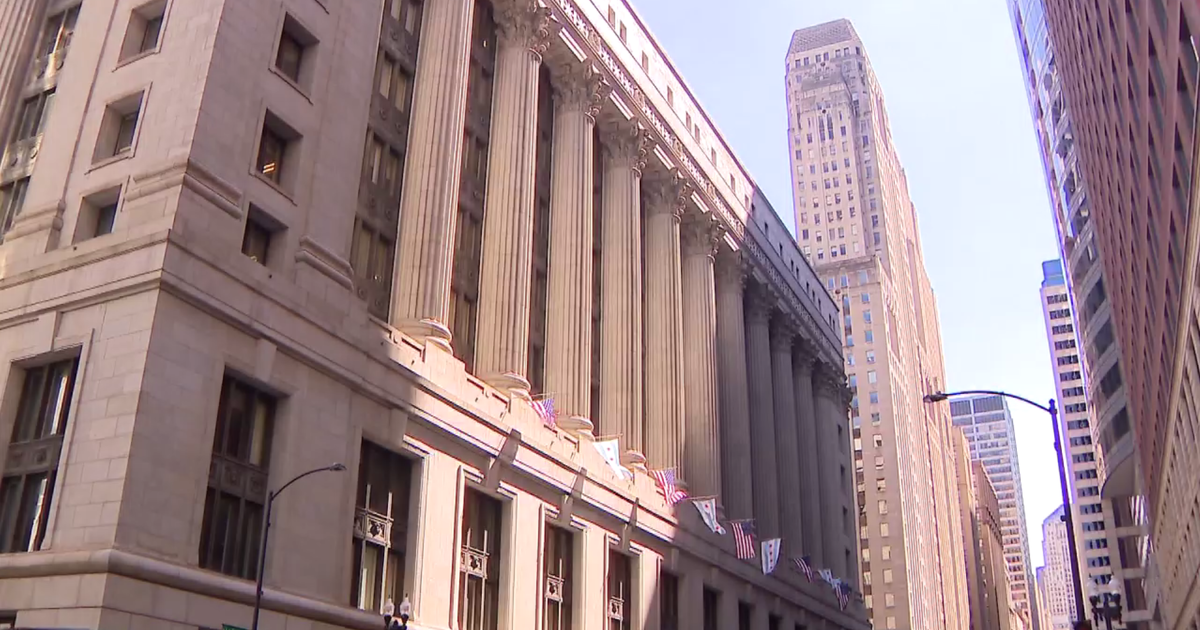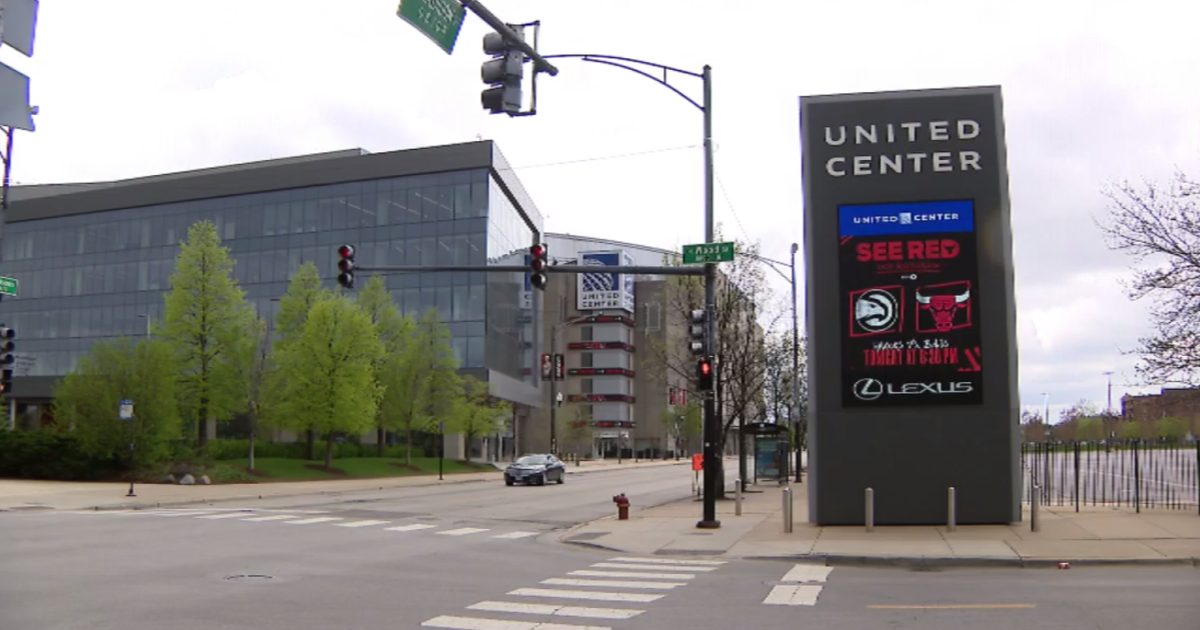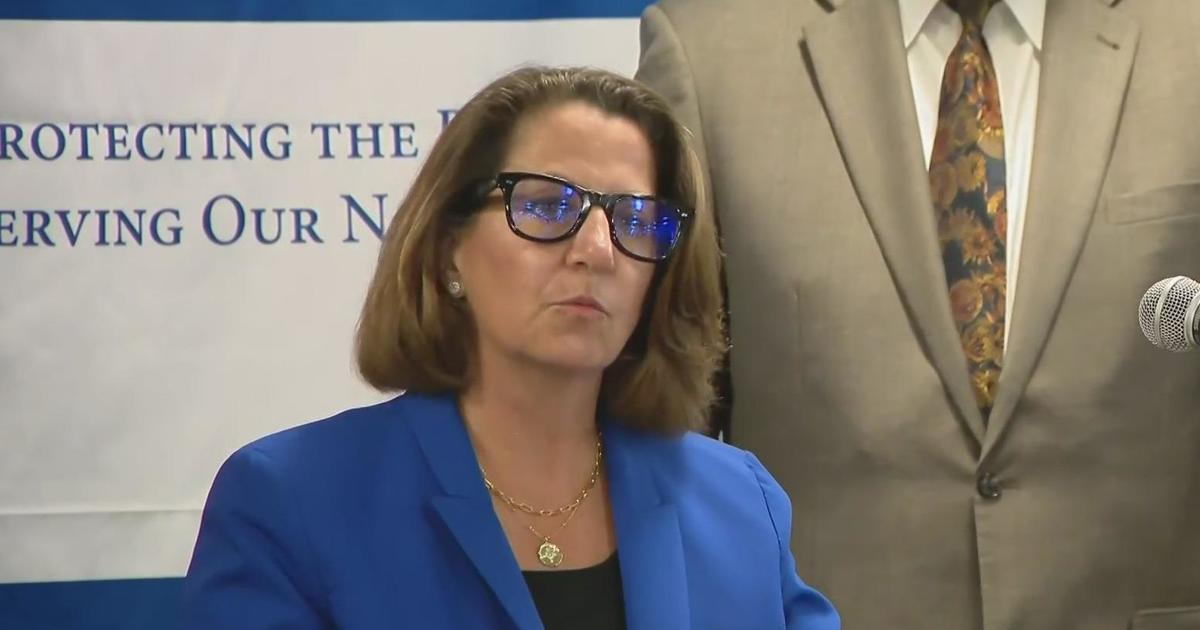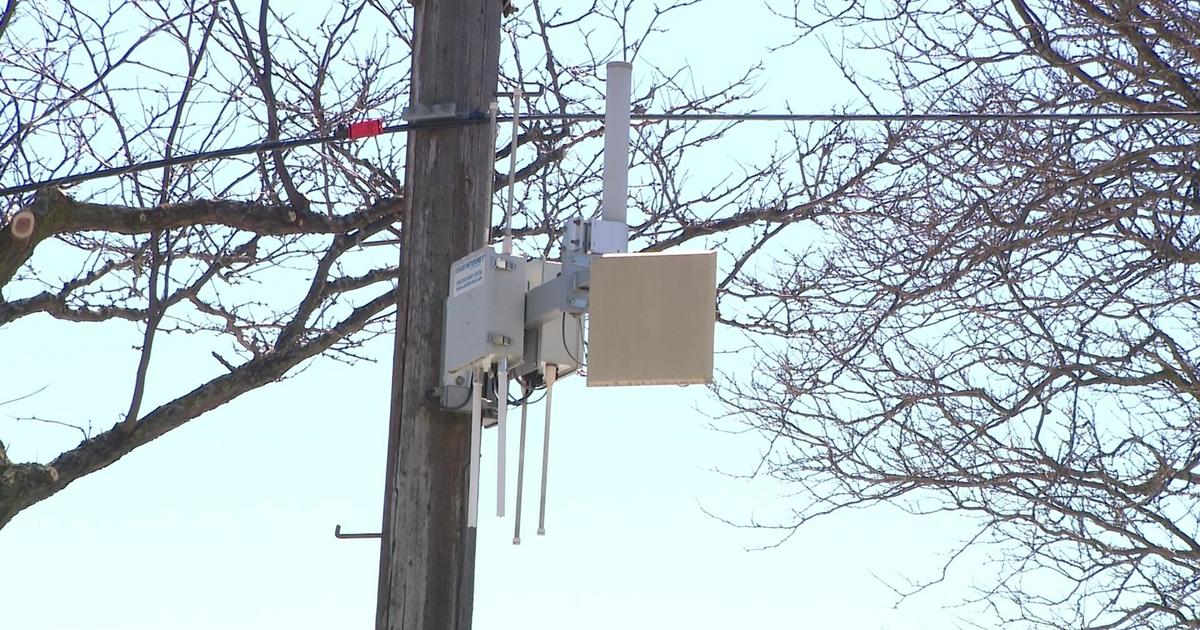LIVE UPDATES: Final Chicago Mayoral Debate, Lori Lightfoot Vs. Toni Preckwinkle
CHICAGO (CBS) -- Lori Lightfoot and Toni Preckwinkle will face off for their final debate Wednesday night on CBS 2, six days before the Chicago mayoral runoff election.
CBS 2's Irika Sargent will moderate the final debate, and along with our panel, we'll be asking the two candidates tough questions about the issues. Topics that could come up in the debate include political corruption, government ethics, gun violence, street crime, education, City Hall budget issues, the city's pension debt, and the Jussie Smollett case.
Thus far, Lightfoot has called for more information on the decision to drop the charges against Smollett, who had been accused of faking a hate crime against himself; while Preckwinkle has been careful not to criticize Cook County State's Attorney Kim Foxx, her political protégé, who recused herself from the case.
While greeting voters Wednesday on the South Side, after earlier in the day questioning why Smollett was allowed to walk, after first demanding a trial.
"They need to have their day in court, there needs to be justice. It's demoralizing to the men and women of the Chicago Police Department who worked very hard and tirelessly to get to the bottom of what had happened that night," she said.
However, it's Preckwinkle who's in a real political pickle. She hand-picked Foxx to run for state's attorney in 2016, after serving as Preckwinkle's chief of staff. If voters believe Foxx's office mishandle the case, they could penalize Preckwinkle, who has steered clear of criticizing Foxx.
"I'm not a lawyer, and I'm not the state's attorney. So I look forward to the explanation from the state's attorney," she said Tuesday.
Foxx defended her handling of the case on Wednesday, stating thousands of other cases involving low-level felonies have been disposed of in a similar manner during her tenure. You'll hear whether both candidates feel there are more questions to be answered when the debate kicks off at 6 p.m.
You can join the conversation on social media using the hashtag #FinalDebateOn2
CBS Chicago will have live updates from the debate:
7:05 p.m.
The debate ended on a sour note, as both candidates were given the chance to ask each other a question. While Lightfoot asked Preckwinkle what she would do to "build hope" for young people in Chicago if she were elected mayor, Preckwinkle asked Lightfoot what she regrets most in her professional life.
"You are a corporate lawyer, and it's something that you've said you are proud of. However, you have defended corporations accused of age and race discrimination," she said.
"Well, there she goes again," Lighftoot shot back.
"You've made a hallmark of your campaign since February 26th to denigrate me, to challenge me, to portray me as something other than I am. Our children are watching. You talk about your grandchildren all the time, and I have to explain to my daughter what it means when adults lie. I have to explain to my daughter when adults are bullies, and I have to explain to my daughter what it means when an adult says something that's not true just to try to score political points," Lightfoot said.
Preckwinkle called Lightfoot's response hypocritical.
"This is a person who is complaining now about the tenor of the campaign, but who in the first debate called me a liar, and has repeatedly said that I'm a cockroach. So I think it's a little bit hypocritical of her to complain now about the tenor of the campaign," she said.
6:54 p.m.
With the Chicago Police Department now under a federal court-enforced consent decree governing sweeping changes to the department's practices and policies, both candidates were asked what changes they would demand in the city's contract with rank-and-file police officers to help improve the department.
Preckwinkle declined to discuss any specific contract demands, "I think it's a mistake to negotiate your contract in public, rather than with your workers first."
Instead, Preckwinkle focused on changing the leadership of the department. In the past, Preckwinkle has vowed to fire Police Supt. Eddie Johnson, accusing him of denying a code of silence within the department.
"The police superintendent has to acknowledge that there's a code of silence in the police department that hampers our ability to hold officers accountable for their bad acts, and encourages other officers to cover up for them," she said.
Lightfoot, on the other hand, said "there's no secrets about what needs to change" in the police contract.
"We can't allow disciplinary records to be destroyed, we have to allow for anonymous complaints, we can't stop investigations if a complainant hasn't filed an affidavit, and we have to be able to use past disciplinary records to determine whether there's a pattern of conduct on the part of an officer," she said.
6:40 p.m.
Preckwinkle was asked why she has said she would keep current Chicago Public Schools CEO Janice Jackson in place, despite a federal monitor overseeing reforms of its special education program, and the district being under fire for a widespread sexual abuse scandal that was exposed by the Chicago Tribune., but she largely dodged the question.
"We've had four different leaders in the last eight years, and that's a challenge for any institutional organization," Preckwinkle said. "These particular challenges, special education and the predatory behavior of some adults toward our young people, are just unconscionable. We have to be sure that our young people are safe in the schools, that's the priority."
Preckwinkle said CPS needs an elected school board, as well as moratoriums on school closings and new charter schools, and the existing administration at CPS should oversee those reforms.
Lightfoot called the CPS sexual abuse scandal "an epic failure" by Jackson and Mayor Rahm Emanuel, but also said she would stick with the current CPS administration for now.
"I'm willing to hear her out, but she's got to demonstrate to me that she understands that she made a mistake, and rectify that," Lightfoot said.
"I have a lot of serious questions that I need to ask her and her leadership team, to make sure that they're never going to make these kinds of mistakes again. I mean, the sex abuse scandal was outrageous. They got notice in January. They did nothing until June 5th, after the Tribune story broke, and then stumbled and fumbled for weeks. It's unacceptable, and that's got to change."
6:30 p.m.
Preckwinkle defended her administration's hiring of Edward Burke Jr., the son of Ald. Ed Burke, to a $100,000-a-year job in the county's Homeland Security and Emergency Management Department, even though he was under investigation for misconduct at the Cook County Sheriff's office, where he worked at the time.
"He'd worked for the county for 20 years. His resume was sent to the Department of Homeland Security. He was vetted and hired for a very similar position to the one that he held in the sheriff's office," she said. "He basically transferred from the sheriff's office to the Department of Homeland Security," Preckwinkle said.
Preckwinkle claimed her office has vastly improved fair hiring practices, noting a federal judge agreed to end oversight of the county's hiring practices, but Lightfoot said hiring Burke was an obvious mistake by Preckwinkle.
"Of course it was a clout hire," she said. "You made a mistake, but you didn't say it was a mistake. If you can't acknowledge that, because you have aspired to climb the ladder of a broken and corrupt machine, that's a problem. And that's exactly what people see, and fundamentally that's what's motivating people to say we have to have change."
6:24 p.m.
CBS 2's Derrick Blakley asked Lightfoot what her first action would be as mayor to make sure another family is not the victim of police raiding the wrong home, like a South Side family was during a 4-year-old boy's birthday party last month.
"That's something that the superintendent has to own, and take responsibility for," Lightfoot said.
If police use faulty evidence to obtain a search warrant, Lightfoot said it's not enough to simply apologize.
"That kid is always forever going to be traumatized by that experience, so we have to do better. We have to make sure that we learn from the lessons, and that supervisors and the line officers are held accountable in a way that they seemingly haven't been," she said.
Preckwinkle said she would make sure the department has a superintendent who acknowledges mistakes, and addresses them.
"In many of our black and brown communities, there's a feeling that the police are an occupying force, and not protecting them," she said.
6:15 p.m.
Both candidates were asked how they would end the inequity in policing in Chicago, noting the amount of resources dedicated to the Jussie Smollett case, when the city's overall murder clearance rate is at 12 percent, and there have been questions raised about a possible serial killer on the loose.
"We obviously have to do better," Lightfoot said, calling the police department's clearance rate in murder cases "unacceptable."
Lightfoot said detectives have to build relationships on the ground with the community before crime happens, so people know who they are when they investigate a crime.
Preckwinkle echoed the sentiment that the city needs to invest more in community policing.
"The way crimes get solved is that officers get cooperation and collaboration from community members," she said.
Preckwinkle also said police need to be better trained in crisis intervention, and held accountable for failures.
6:10 p.m.
Lighftoot and Preckwinkle also were asked how they would repair the relationship between the Chicago Police Department and the Cook County State's Attorney's office after prosecutors dropped charges in the Jussie Smollett case, without first notifying police.
Lightfoot denied that the situation was a crisis, but said prosecutors need to provide more information about their decision.
"There is a symbiotic relationship there. Sometimes it works. Sometimes it doesn't," she said. "There's got to be more fulsome information from the states attorney's office."
Preckwinkle said she has experience bringing people together as the Cook County Board President.
"You have to bring all of the actors in the criminal justice arena together to try to address this problem. It's not an insurmountable problem," she said.
6:06 p.m.
The first question of the debate was about the Jussie Smollett case, and how they would have responded as mayor.
Lori Lightfoot said the decision to drop charges against Smollett "raises a lot of questions," and said the state's attorney's office should "give fuller disclosure about that decision."
"The optics look like, if you're rich and famous, you got one kind of justice, and if you're everybody else, it's something entirely different," she said.
Toni Preckwinkle said "the critical issue here is transparency and accountability."
"We need to know as much about what happened and why. So I think the state's attorney has to be really forthcoming about the reasons for the dismissal," she said.
Preckwinkle also said the judge should unseal the record in the case.



